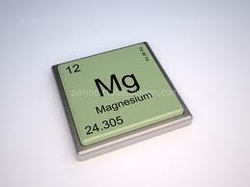 Low serum magnesium levels are linked to an increased risk of suffering a stroke, according to a study published in the January issue of Stroke. Peripheral artery disease, or peripheral vascular disease, refers to diseases of the arteries and veins of the extremities, especially atherosclerosis with narrowing of the arteries. Researchers conducted the study to see if magnesium levels were associated with stroke risk in patients with peripheral artery disease. The study authors followed 323 patients with symptomatic peripheral artery disease and intermittent claudication (www. age was 68 years) for 12 to 25 months. Thirty-five of the subjects (11%) developed neurologic events such as strokes. Subjects who had the lowest magnesium serum levels had triple the risk for stroke and other harmful neurologic events compared to the patients with the highest serum magnesium levels. This study showed that magnesium deficiency played a role in the constriction of arteries and enhanced injury to the cellular tissues lining the blood vessels, opening the door to the development and progression of atherosclerosis. The researchers noted that the results favor the administration of magnesium to patients with advanced atherosclerosis. Reference: Amighi J, Sabeti S, Schlager O, Mlekusch W, Exner M, Lalouschek W, Ahmadi R, Minar E, Schillinger M. Low serum magnesium predicts neurological events in patients with advanced atherosclerosis. Stroke. 2004 Jan; 35(1): 22-7. Epub 2003 Dec 04 Foods High in Magnesium
Squash, Pumpkin, and Watermelon Seeds, Cocoa Powder (Dark Chocolate), Flax, Sesame Seeds, and Sesame Butter (Tahini),Sunflower Seeds, Brazil Nuts, Almonds and Cashews (Mixed nuts, Pine Nuts), Molasses, Dry Roasted Soybeans (Edamame)
0 Comments
Leave a Reply. |
New Patient SpecialArchives
July 2024
Categories |
 RSS Feed
RSS Feed
